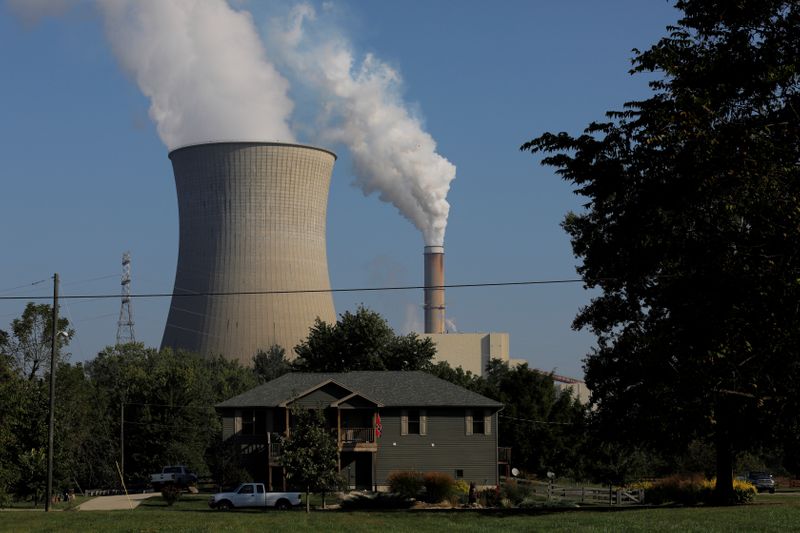By Nichola Groom
(Reuters) - The governors of five Republican states are ready to fight Democratic President-elect Joe Biden if he tries to require the power sector to slash greenhouse gas emissions.
The litigious stance reflects just one of the many obstacles Biden will face as he seeks to deliver on a campaign promise to bring the U.S. economy to net zero emissions by 2050 to combat climate change.
Biden's pledge includes a goal of cutting net emissions from the power sector – a top source of nationwide greenhouse gases - to zero by 2035, though the president-elect has yet to detail how he intends to make it happen. Lawsuits from states could halt implementation of any Democratic plan, as they did in 2016.
"We can all agree that lower emissions are better, but we should also all be able to agree that cost-prohibitive, counterproductive regulations for the sake of catering to an extreme wing of a political party is destructive," said Bailey Martin, a spokeswoman for Mississippi Governor Tate Reeves.
Republican-governed Mississippi, North Dakota, Wyoming, Nebraska and Arkansas said they would challenge any new federal policies requiring the power sector to cut carbon emissions. Utah and Missouri, also under Republican governors, said they would review proposals before deciding.
The seven were among 27 states that sued in 2015 to block the Clean Power Plan (CPP), the Obama administration’s signature effort to address climate change by requiring deep cuts in power-sector emissions. Fifteen other states in the lawsuit, including four now under Democratic leadership, either declined to say how they would respond to a new emissions reduction order or did not respond to requests for comment.
The states' lawsuit reached the Supreme Court, which stayed implementation of the CPP in 2016. Outgoing President Donald Trump's administration proposed rescinding the policy in 2017, a move that was finalized last year.
Several of the states that opposed the CPP have politically powerful coal and drilling industries that they want to protect, even though some are seeing a big voluntary shift by utilities to cleaner energy sources.
Wyoming, for example, has a big coal industry but also rapidly growing wind energy production. Its governor, Mark Gordon, told Reuters he would oppose any plan that would "hamstring Wyoming's efforts to produce energy from all her existing natural resources.”
A spokesman for Biden declined to comment.
VOLUNTARY CUTS
Despite a dearth of federal regulation, carbon dioxide emissions from U.S. power plants fell 20% between 2014 and 2019, according to the U.S. Energy Information Administration, as utilities replaced aging coal-fired power plants with facilities that generate power from cleaner and often cheaper sources like natural gas, wind and solar.
Many on the political right have embraced the shift into renewables as a job-generator.
The states polled by Reuters, for example, collectively showed an emissions decline in line with the national average, according to EIA data. And states that voted for Trump in November's election account for the majority of the 10 biggest consumers of renewable energy as a percentage of overall electricity demand, according to Environment America Research & Policy Center, a green research and advocacy group.
For some states, this is proof federal regulations aren’t needed.
"Our power companies have voluntarily embraced sources of alternative energy without heavy-handed regulation from government," Arkansas Governor Asa Hutchinson said in a statement. "Which indicates to me that they are following the markets. We prefer a market-driven response to government mandates."
A spokeswoman for Missouri Governor Michael Parson pointed out that two of the state's biggest utilities have committed to large voluntary carbon reductions by 2050, including a net zero pledge by Ameren Corp (NYSE:AEE), which boasts 1.2 million electric customers in the state.
Democratic lawmakers and environmental groups, however, have argued that free-market forces can only push the utility industry so far and that a net-zero emissions goal is not achievable without federal regulation.

Dan Reicher, who was assistant secretary for renewable energy during the Clinton administration, said policy was critical to making sure certain states did not lag behind.